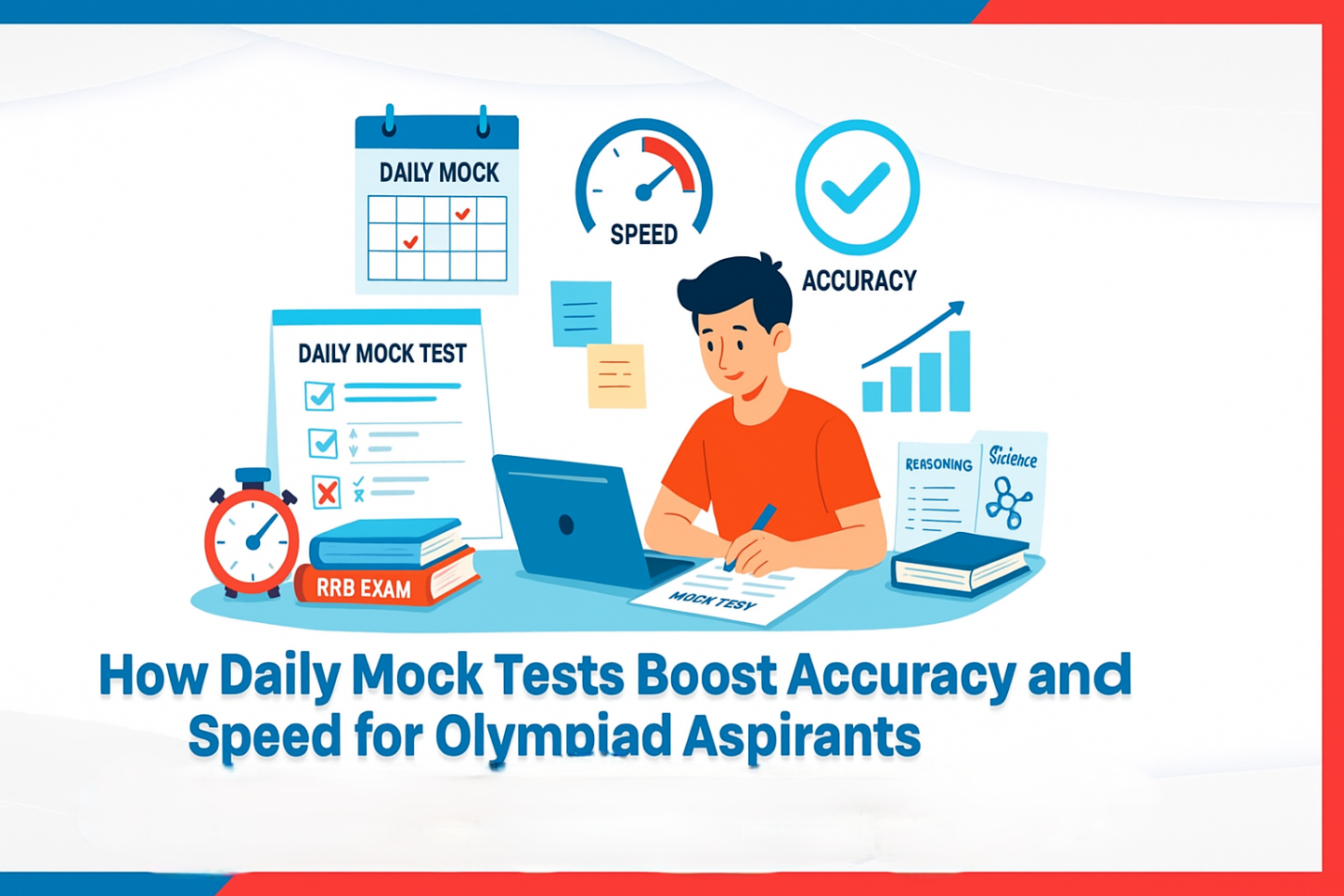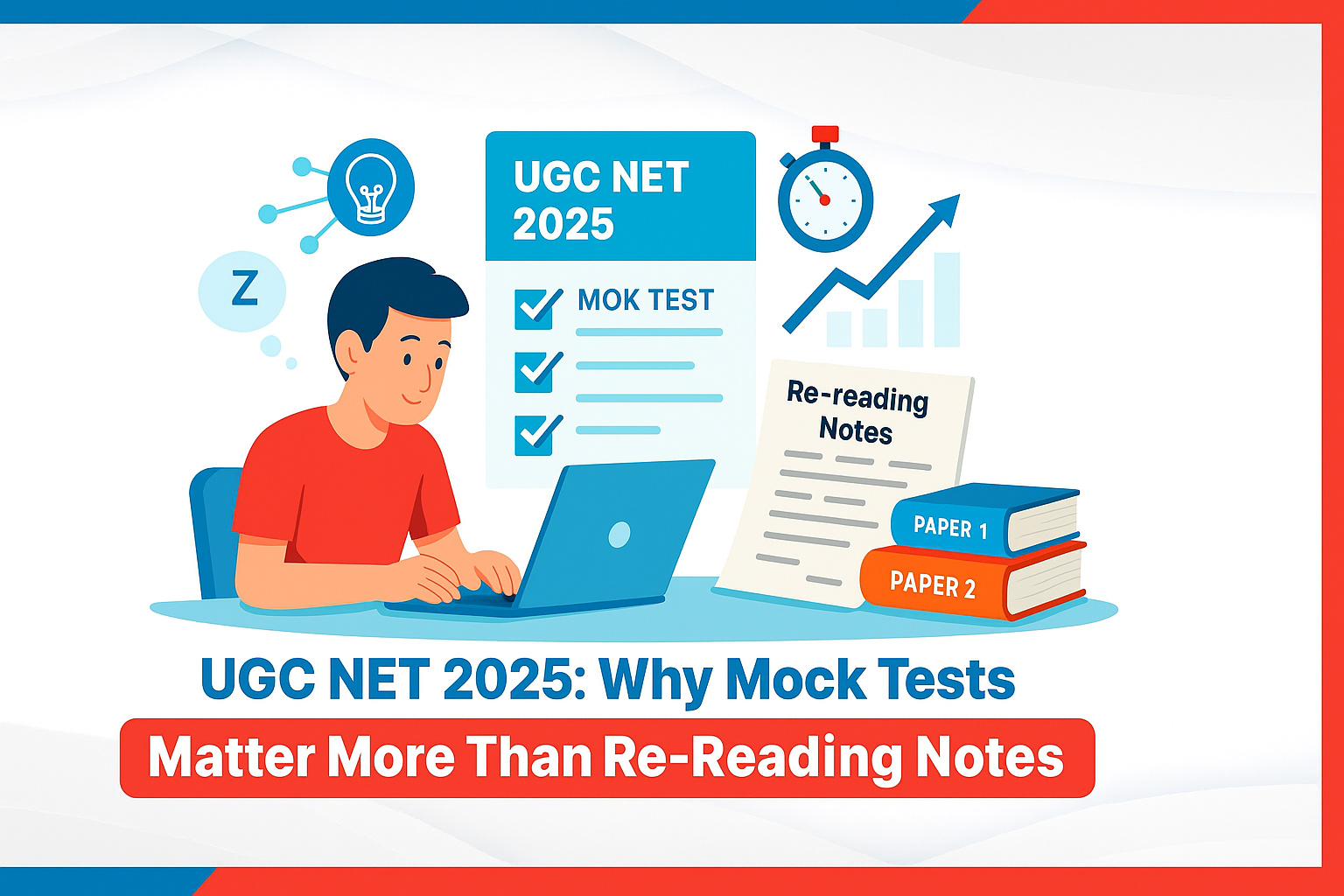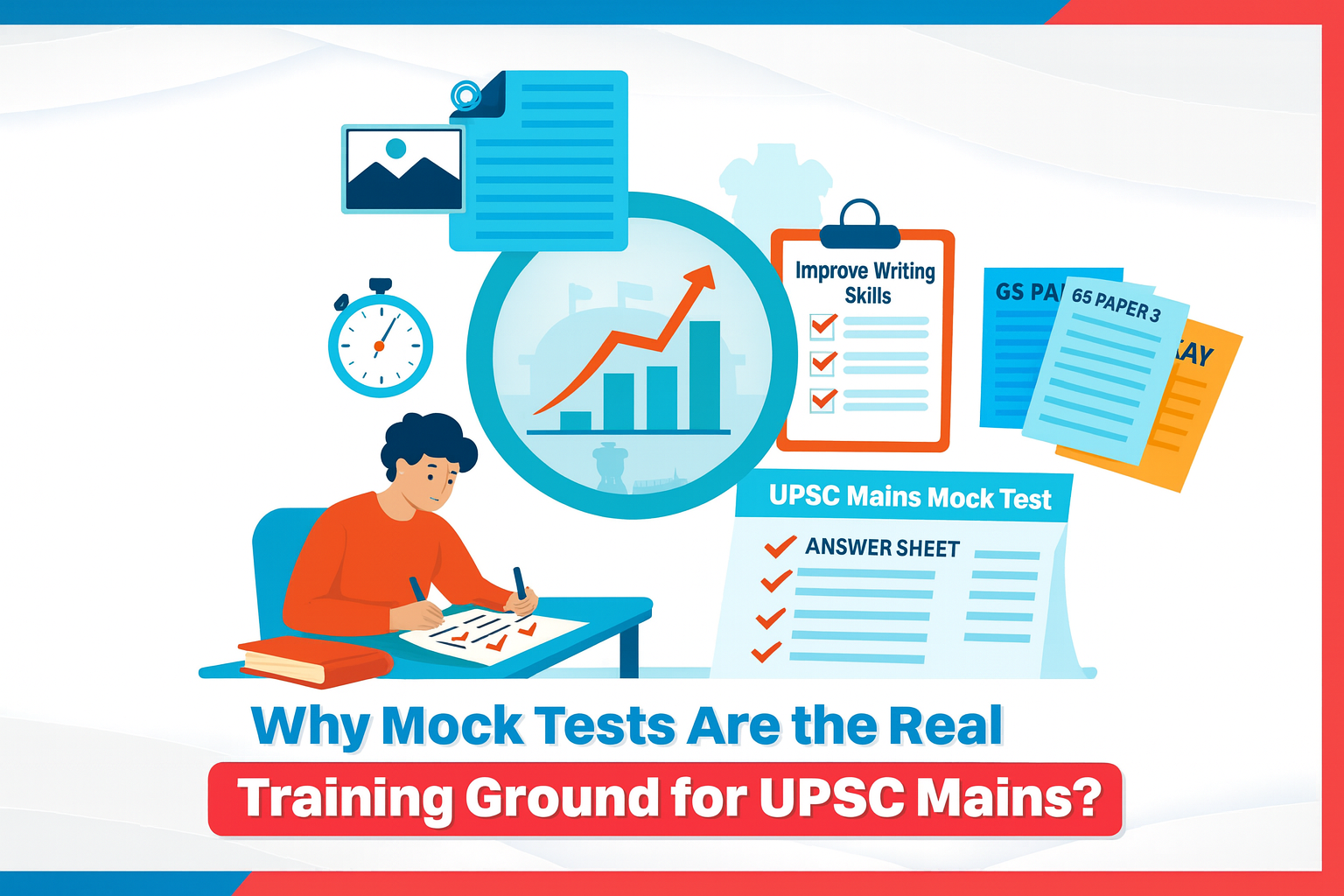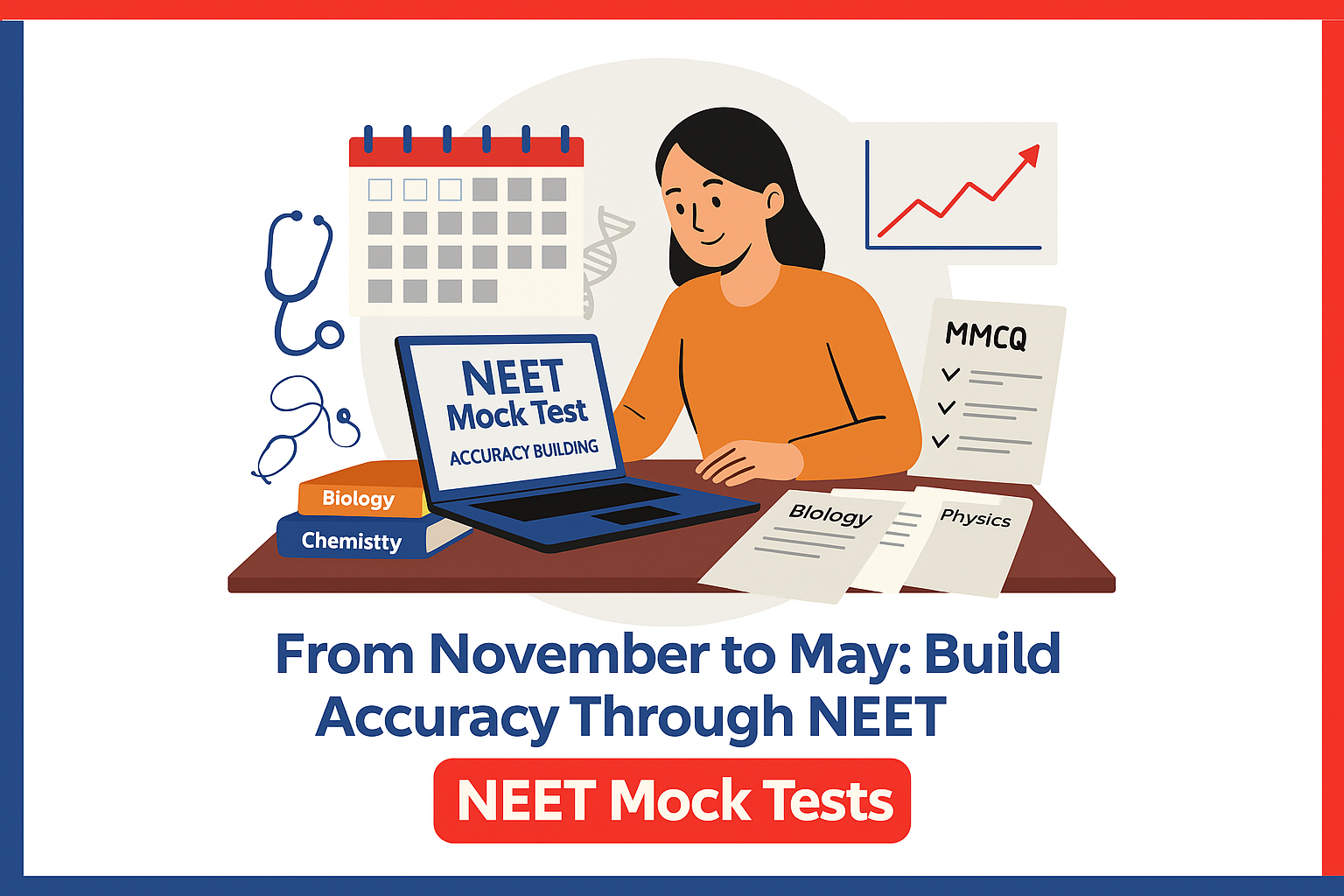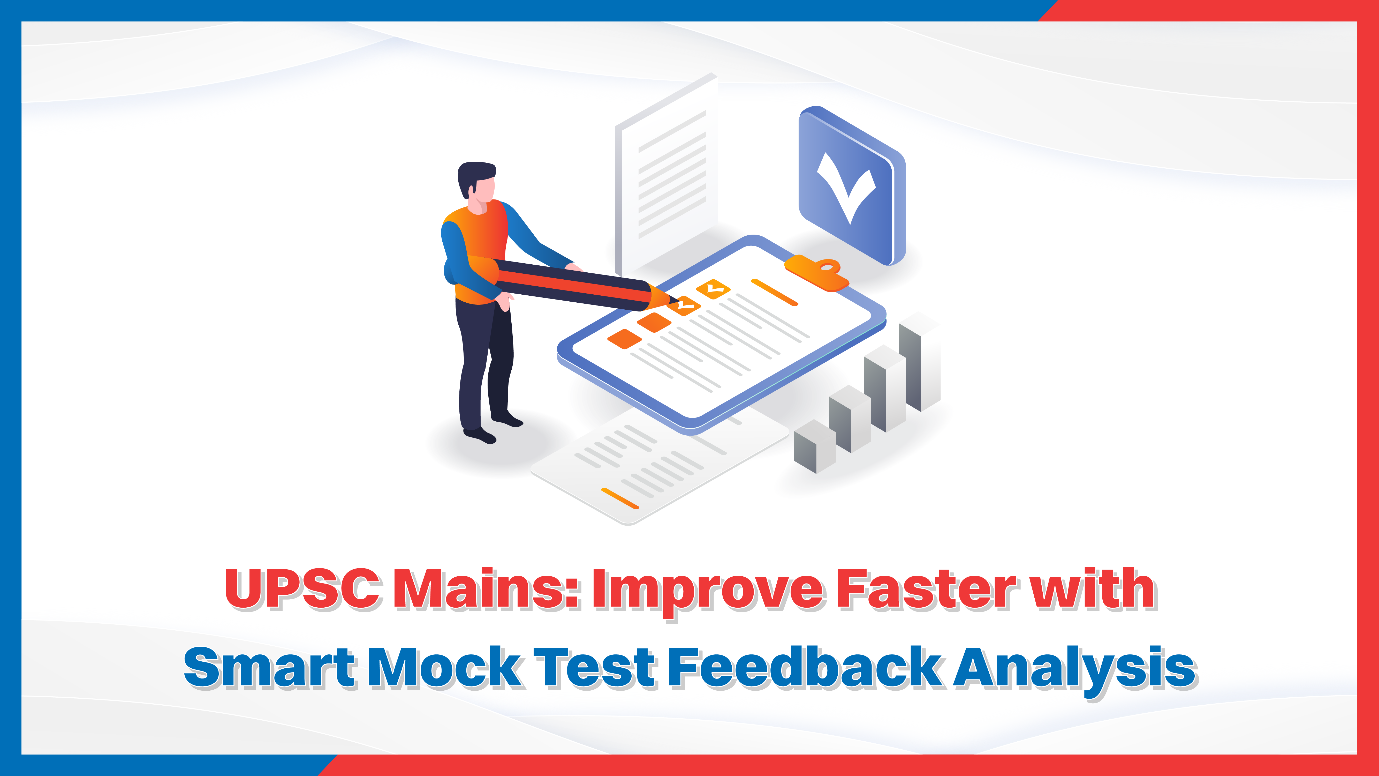
The Mains exam preparation needs not only effort but also clever planning. Smart mock test feedback analysis is one of the best instruments of rapid improvement. Now, we need to see how the process can assist candidates in performing better in the Mains stage.
Must Read- How to Use UPSC Mains Previous Years' Papers Effectively?
Buy Now: essay book for UPSC
What are the benefits of feedback analysis in the preparation of UPSC Mains?
The feedback analysis assists the aspirants to know the areas of strength and weakness after taking a UPSC mains mock test. Smart analysis gives an insight into:
- Time management
- Presentation and structure of answer
- Topic-wise performance
With this feedback, the aspirants will be able to revise their plan according to the UPSC syllabus.
Why is mock test analysis more effective than just taking the test?
Simply attempting a UPSC mock test online is only half the work. The actual improvement is powered by the post-test review. The comparative table is as follows:
|
Aspect |
Attempting Mock Tests Only |
Mock Test + Feedback Analysis |
|
Objective |
Practice writing |
Improve accuracy & writing quality |
|
Outcome |
Limited learning |
Strategic growth |
|
Time Usage |
Less efficient |
Highly efficient |
|
Connection to UPSC syllabus |
Indirect |
Direct and targeted |
What should you look for in a smart mock test analysis?
A smart feedback system following a UPSC mains mock test must contain:
- Topic-wise analysis of the score
- Analysis of the quality of the introduction, body, and conclusion
- The use of keywords and observance of the question demand
- Comparison with the answers of toppers
How does analysing PYQs relate to mock test feedback?
The knowledge of the PYQ of UPSC Main (previous year questions) can be used to establish trends. When you compare mock answers and PYQ patterns:
- You can see what kind of questions are repeated.
- You polish your writing according to the real UPSC demands.
- You narrow the difference between mock and the real exam performance.
By incorporating PYQ knowledge in your UPSC mock test online analysis, you will increase your scoring potential.
How frequently should you analyze your mock test performance?
It is better that after every test in your test series for UPSC, you spend at least 1–2 hours on feedback analysis. Just do the following 3 steps:
Evaluate – Identify where marks were deducted and why.
Compare – Review the answer sheets of the topper or model answers.
Revise – Work on weak areas before the next test.
Are You a Teacher? For Latest Updated FREE UPSC Specimen Sample Books for Teachers- Click Here
Conclusion
With a bit of smartness, the feedback of the UPSC mains mock tests can fill the gap between preparation and performance. It makes your preparation more specific than generic, which results in a quicker and more measurable improvement. Be it a free mock test of UPSC or a paid test series of UPSC, one should always aim at learning with the help of feedback. It’s the secret weapon of toppers.





